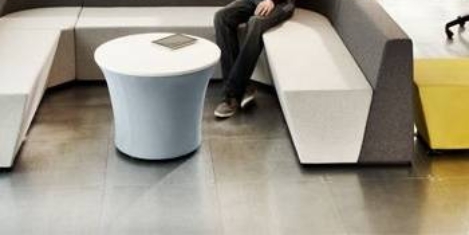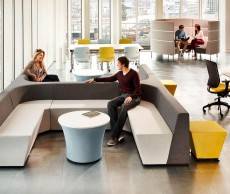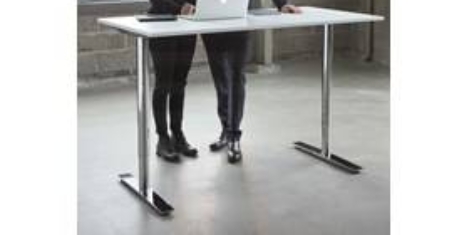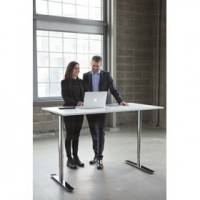May 27, 2015
Sheppard Robson release details of new mixed-use scheme in Clerkenwell
 Architects Sheppard Robson have released more details of their design for a major mixed-use project in the Clerkenwell district of London. The site is currently occupied by a multi-story car park and the new scheme, developed alongside Endurance Land will include a 3,900 sq m office development aimed predominantly at SMEs, particularly those in the media, technology and creative industries for which the area is known. The scheme includes a hotel and retail spaces at ground level. Sheppard Robson claims that ‘all elements of the development in-keeping with the vibrancy of Clerkenwell and nearby Exmouth Market, whilst also acknowledging the history of the site which is adjacent to two conservation areas’. The hotel will be operated by Premier Inn, and include a touchdown cafe open to guests and the public.
Architects Sheppard Robson have released more details of their design for a major mixed-use project in the Clerkenwell district of London. The site is currently occupied by a multi-story car park and the new scheme, developed alongside Endurance Land will include a 3,900 sq m office development aimed predominantly at SMEs, particularly those in the media, technology and creative industries for which the area is known. The scheme includes a hotel and retail spaces at ground level. Sheppard Robson claims that ‘all elements of the development in-keeping with the vibrancy of Clerkenwell and nearby Exmouth Market, whilst also acknowledging the history of the site which is adjacent to two conservation areas’. The hotel will be operated by Premier Inn, and include a touchdown cafe open to guests and the public.
































May 29, 2015
Everything you wanted to know about open plan but were too distracted to ask
by Maciej Markowski • Comment, Facilities management, Work&Place, Workplace design
(more…)